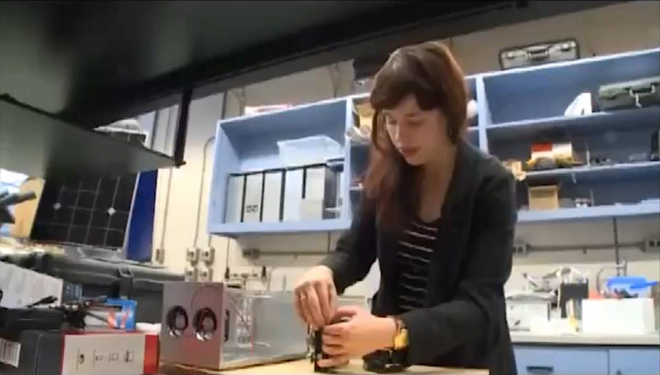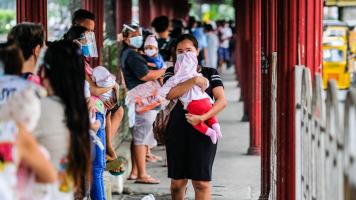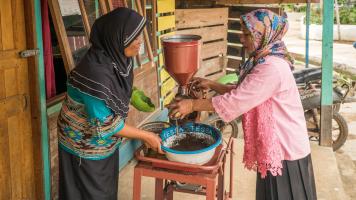
The idea for the solution had its origins about 11 years ago while WeavAir cofounder Natalia Mykhaylova was studying for her PhD in chemical and environmental engineering. Photo credit: WeavAir.
The company bested more than 60 teams which joined the challenge.
A company that uses the internet of things and predictive software to detect contaminants including the virus that causes the coronavirus disease (COVID-19) in the air distribution systems of hotels and resorts bagged $10,000 in a hackathon organized by the Asian Development Bank (ADB) to find digital solutions to kick-start tourism in Southeast Asia.
WeavAir was cofounded by Natalia Mykhaylova, who said the technology behind the solution had its origins about 11 years ago while she was studying for her PhD in chemical and environmental engineering building sensors and making software to make the environment healthier.
WeavAir bested more than 60 teams which joined the challenge, Re-establishing Tourism Confidence through Innovative Digital Solutions: Fast-tracking Tourism Recovery in Southeast Asia launched October last year.
Mykhaylova, the CEO, said her team designed the solution to address gaps in air distribution systems in buildings, which were typically expensive, time-consuming to operate, and not predictive enough. “Our solution is designed to be simple and easy to operate. We install air quality ventilation monitoring devices. They track COVID risks. They track air quality. They track occupancy. It uses data to improve how the buildings are run, their ventilation systems, maintenance, and cleaning service.”
Having such a system in buildings, particularly in hotels and resorts, can help maintenance managers ensure air distribution systems are in tip-top shape, in turn, give guests a feeling of security during their stay.
Finalists
The other three teams that made it to the finals included:
- Hotel Resilient, which developed a map-based platform that allows hotels to demonstrate they meet all the verified COVID-19 safety and sustainability standards to assure travelers of their safety during their stay.
- Immunodex, which developed an app-based health certification system that may be used in airports to verify the health status of travelers.
- Survenus, which uses artificial intelligence solutions to monitor, analyze, and predict the incidence of infectious diseases in real-time, enabling safer travel for the public.
The four teams presented their last pitches to a panel of judges at the sidelines of ADB’s virtual Southeast Asia Development Symposium 2021, which ended 18 March.
In accepting the award, Mykhaylova noted complementarities in the solutions developed by the other finalists, citing the possibility of working together to offer solutions that could help restore confidence in the tourism sector.
WeavAir had won several other awards in the past for its technology and solution, which could also be applied not just in hotels and resorts, but in other buildings as well.
Steven Schipani, unit head for project administration at ADB's Southeast Asia Department and one of the judges for the hackathon, cited a combination of factors why WeavAir stood out against the other panelists. “WeavAir took the top spot in the hackathon because its proven, scalable technology and strong business case address the fundamental need for clean air in accommodations and other tourism businesses.”
He was also impressed by the quality and diversity of solutions ADB received for the hackathon. “Those presented in the final pitching event all show strong potential to help safely revive tourism in Asia and the Pacific.”
The other judges included: Bernd Schneider, Fairmont Raffles Hotels Makati general manager; Ozzeir Khan, director of ADB's Information Technology Department; Ee Ling Lim, head of business development for Asia Pacific at 500 Startups; Anumpa Jain, ADB senior urban development specialist; and John Cann, principal business development manager at Amazon Web Services.
ADB organized the hackathon to find digital solutions that can help restore confidence on the tourism industry in Southeast Asia. The World Travel and Tourism Council estimated that Asia and the Pacific's tourism sector lost up to $1.1 trillion in income and 69.3 million jobs in 2020 due to the pandemic.


